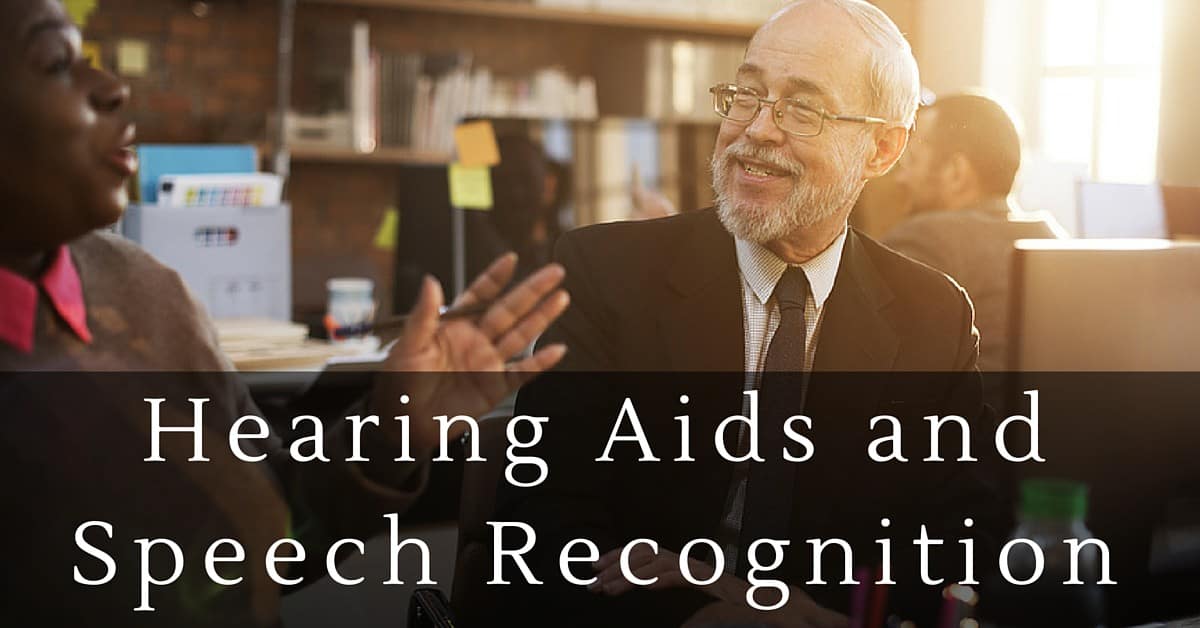
Hearing Aids and Speech Recognition
How Do Hearing Aids Help Us Understand Speech?
When is the first time you realized you might have hearing loss? We’re willing to bet it had something to do with changes in your ability to understand speech, either with your loved ones, on the telephone or on your favorite TV shows.
Difficulty understanding speech is often one of the first things we notice when we begin to lose our hearing. While we might not notice small changes in our ability to hear music and other sounds, the complex demands on understanding spoken language will be more noticeable.
But even after hearing aid wearers find the perfect aid and experience the benefits to their ability to hear speech, many aid wearers aren’t sure how their aid has helped. There are many ways a hearing aid helps us understand speech, but a few important factors are key to this improvement. When it comes to speech and hearing aids, here’s what you should know.
Frequencies in Speech
Every sound we hear on a daily basis is simply a frequency. When we “hear” a sound, our ears decode these frequencies and use this information to tell our brain what sound we are hearing. Speech is made up of many different frequencies, since speech is a combination of separate sounds of varying pitch. High pitched sounds are actually higher frequency, and lower sounds are lower frequency.
When someone speaks, we use these differences to differentiate between letters that make up words and phrases. Our ability to perceive high and low frequency sounds is what allows us to hear the difference between a B and a P. When we begin to lose our hearing, however, we lose the ability to perceive certain frequencies. Most often, it’s the highest frequency sounds that we lose the ability to hear first.
As we lose this ability, we’re losing much of the information we need to understand speech. If we can only hear lower frequency sounds, speech begins to sound muddy, and we often mix up words like “pat” and “bat”, or “bill” and “bit”. That’s because we might not be hearing those P and T sounds with as much clarity as before.
When you wear a hearing aid, it focuses on these higher frequency sounds and adjusts them so that you can hear them alongside lower frequency sounds. Every aid wearer is different, and your aid can be adjusted to accommodate for different levels of hearing loss. Your aid will make speech sound more clear and rich, since it allows you to hear those frequencies you couldn’t hear before. Suddenly you’ll be able to perceive small differences in sound that allow you to understand the letters in words.
Background Noise and Speech Perception
Beyond just our ability to perceive certain frequencies, speech also requires us to focus our energy on certain sounds. As we age and begin to lose our hearing, these changes are often most noticeable in noisy environments like parties or restaurants. That’s because there are many competing sounds that make it hard to focus on the sounds we need to understand conversations. This is often why those who suffer from hearing loss withdraw from social situations in environments where ambient noise makes understanding conversation more difficult.
Hearing aids do more than just adjust and amplify certain frequencies – they often also allow us to amplify sounds coming from a certain direction. They do this with the use of directional microphones, which are adjusted either manually or automatically depending on the aid. So instead of amplifying sounds that come from all around us, you can focus on sounds coming from right in front of you. That makes understanding speech much easier.
Depending on your aid, you can adjust the microphones’ direction manually or automatically. Some aids have handy remote controls or even smartphone apps that allow you to make these adjustments, while others automatically adjust to a particular direction. Some aids even connect to hand held microphones for even more control over our microphone’s direction!
Hearing aids change our lives for the better, and improve our relationships in the process. If you are having a difficult time understanding speech and conversations, it might be a sign that it’s time for a hearing test. Contact our team to find out about your hearing and to find the right hearing aid for you!
